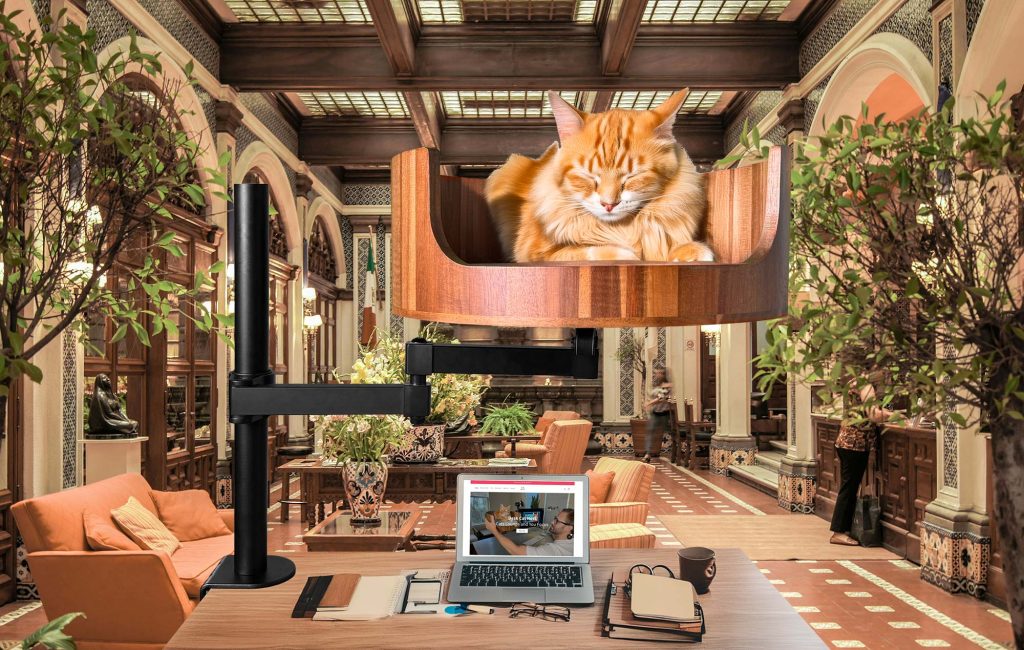Have you ever noticed your kitten twitching or moving in their sleep? If so, you’re not alone. Many cat owners have observed their furry friends exhibiting this behavior while they are catching some Z’s. But what exactly causes kittens to twitch in their sleep? In this article, we will delve into the reasons behind this common phenomenon and help you understand what your kitten may be experiencing during their slumber.
From dreams to physical development, there are several factors that could contribute to your kitten’s twitching during sleep. By exploring these reasons, you will gain a better understanding of your feline companion’s behavior and be able to provide them with the care and comfort they need. So, next time you see your kitten twitching in her sleep, you’ll know just what might be going on in her tiny little head. Stay tuned to uncover the secrets behind your kitten’s sleep time movements.
1. Kittens twitching in their sleep is a common phenomenon that is usually harmless and a sign of normal brain activity.
2. These involuntary movements are similar to when humans twitch or move during their sleep and are typically a result of dreaming.
3. Twitching can also be a sign that your kitten is in a deep phase of sleep, known as REM sleep.
4. However, if the twitching is excessive, accompanied by other symptoms, or continues into adulthood, it is important to consult a veterinarian.
5. Understanding your kitten’s sleep patterns and behaviors can help you provide the best care and ensure their overall health and wellbeing.
Causes of Kitten Twitching in Sleep
There are several reasons why kittens may twitch in their sleep. One common cause is the rapid eye movement (REM) stage of sleep, which is when most dreaming occurs. During this stage, kittens may twitch, move their paws, or even make little noises as they dream. Other possible causes include muscle spasms, nightmares, or reactions to external stimuli such as noises or movements in the environment.
Normal Behavior vs. Signs of Concern
In most cases, kitten twitching in sleep is completely normal and nothing to be worried about. However, there are some signs that may indicate a more serious underlying issue. If your kitten is twitching excessively, persistently, or in a way that seems abnormal, it may be a good idea to consult with a veterinarian. Other signs of concern include loss of appetite, lethargy, or changes in behavior while awake.
How to Help a Twitching Kitten
If you notice your kitten twitching in her sleep, there are a few things you can do to help. Firstly, try not to disturb her or wake her up, as this can interrupt her sleep cycle. Providing a comfortable and safe sleeping environment can also help reduce twitching episodes. If you suspect that the twitching is caused by external stimuli, such as loud noises or bright lights, try to minimize these distractions during your kitten’s nap time.
When to See a Vet
While occasional twitching in sleep is usually harmless, it is important to pay attention to any changes in your kitten’s behavior or sleep patterns. If you notice persistent twitching, excessive movements, or other concerning symptoms, it is best to seek advice from a veterinarian. They can help determine the underlying cause of the twitching and provide appropriate treatment if necessary. Remember that early detection and intervention can help prevent more serious health issues down the line.
## FAQ
### Why does my kitten twitch in her sleep?
Kittens often twitch in their sleep due to Rapid Eye Movement (REM) sleep, during which their brain activity is similar to that of humans during dreaming. This twitching is a normal and healthy behavior for kittens.
### Is twitching in sleep harmful for my kitten?
No, twitching in sleep is a natural and harmless behavior for kittens. It is a sign that your kitten is in deep and restful sleep.
### Should I be concerned if my kitten twitches excessively in her sleep?
If your kitten twitches excessively in her sleep or if the twitching is accompanied by other concerning symptoms, such as seizures or mobility issues, it is recommended to consult with a veterinarian to rule out any underlying health issues.
### Will a Desk Cat Nest help my kitten sleep better and reduce twitching?
A Desk Cat Nest provides a comfortable and cozy sleeping space for your kitten, which can help promote better sleep and reduce twitching. Cats often feel more secure and relaxed in enclosed spaces, which can contribute to more restful sleep.
### How can I help my kitten have a more restful sleep?
Providing a comfortable and safe sleeping environment, such as a Desk Cat Nest, ensuring regular playtime and exercise, and maintaining a consistent bedtime routine can help promote more restful sleep for your kitten.
In conclusion, the Desk Cat Bed is a valuable choice for addressing why your kitten twitches in her sleep. This cozy and comfortable bed provides a secure and comfortable environment for your kitten to rest peacefully. With its soft padding and raised edges, the Desk Cat Bed helps alleviate any potential discomfort or stress that may be causing your kitten to twitch in her sleep. By providing a designated and safe space for your kitten to sleep, the Desk Cat Bed can help promote better sleep quality and overall well-being for your furry friend. Make the wise choice and invest in the Desk Cat Bed for a happier and healthier sleeping experience for your beloved kitten.


